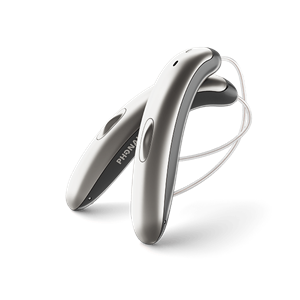How to relieve earaches and ear Pain? 8 natural remedies | Connect Hearing

How to relieve earaches and ear Pain? 8 natural remedies | Connect Hearing
10 min.
Publication Date: March 5, 2020
Anybody who has ever had an earache or suffered from significant ear pain knows that it’s not fun! Earaches can be caused by a variety of seemingly unconnected things, but fortunately there are natural at-home remedies to help alleviate ear pain. Let’s look at some common causes and what you can do at home to help with pain management.
Common Causes of Earaches
Earaches are one of the most common health issues seen by doctors and can affect young and old alike often unprompted. Usually manifesting as anything from a dull ache to a sharp, unrelenting pain in one or both ears, earaches will most often resolve themselves in one to two weeks.
If, for any reason, you find yourself with ear pain lasting longer than a couple of weeks, you should visit your primary care provider for professional audiologist for follow up.
It’s important to remember that earaches and ear pain are not always infection related. Sometimes the pain can be more closely associated with sickness or what is called “referred” pain.
Referred pain is real, but it originates from a different location, i.e., a bad or infected tooth.
Here are some of the common causes of earaches and ear pain:
Ear infection (acute Otitis Media) - often seen in children but can affect adults as well. When someone suffers ear infections chronically, there is often surgical intervention with the use of ear tubes or grommets.
“Glue ear” - a condition where someone gets a glue-like substance filling their middle ear. It usually resolves itself within a few weeks.
Impacted or built-up earwax
Throat or sinus infections or colds
Pain in the jaw from an impacted or infected tooth or from teeth grinding
Cold weather sometimes causes ear pain for some people
Changes in altitude, such as when flying in an airplane, scuba diving, or when driving in mountainous areas
Water trapped in the ear or Swimmer’s ear (Otitis Externa)
Natural and Home Remedies that Will Help Alleviate Earaches and Ear Pain
The good news for people who are suffering from an earache is that there are several great home remedies that work to relieve discomfort and stop the annoying pain. Many of these have been used successfully for years and are recommended by clinicians (as well as moms) as a first line of defense in combatting earaches.
Apply warm or cold compresses. Some people recommend alternating between the two every 10 or 15 minutes. Remember, with heating pads-never fall asleep while using and never let children use unsupervised. With cold or ice-always cover with cloth and never directly apply to skin. Compresses work best when applied under the ear.
For outer ear infections or drainage, equal parts of apple cider vinegar and isopropyl rubbing alcohol-several drops should be applied directly in the ear, wait several minutes, then drain. Proven to have healing and anti-bacterial properties, apple cider vinegar (unfiltered) kills many types of harmful bacteria and restores the pH of the ear canal. Will not alleviate ear pain, but due to its antimicrobial properties this method can be used in conjunction with traditional ear infection treatments.
Long used in commercial ear drops, Hydrogen peroxide diluted with equal parts water can be used to gently breakdown cerumen (ear wax). Just apply several drops into the ear, let sit for few minutes, and then drain out – rinse with clean water.
To relieve ear pressure that’s causing pain, try chewing gum or sucking on candy. This reduces the pressure that is built up in the Eustachian tubes located between the middle ear and the back of the nose and throat. This is especially helpful when you encounter a change in altitude, such as when flying in an airplane or when driving in the mountains. In these cases, swallowing can also help.
To softening ear wax, try warm olive oil, no warmer than body temperature to avoid burning the inside of the ear.
Change your sleeping position by propping up your head and torso instead of lying flat on your back or on your side. This will often help in at least getting a better night’s sleep during the time it takes for the earache to resolve.
Naturopathic herbal ear drops can be found at any local health food store and now most major supermarkets. These drops tend to have a clove or lavender base and often contain ginger, a natural anti-bacterial.
There are always over the counter pain relievers, in particular non-steroidal anti-inflammatory drugs (NSAIDs) that will help with ear pain.
These treatments, used judiciously, will aid in reducing ear pain associated with earaches. If you are experiencing more serious symptoms, it is imperative that you seek advice from your primary care physician or ENT doctor. More extensive issues may require medical management with drops or medications, antibiotic therapy, or a surgical intervention to place ear tubes.
If you are unsure, it is always better to error on the side of caution and go see your ENT doctor. A progressively worsening hearing loss can be a sign that something is not right and needs quick follow up.
For the more routine earaches and pains, these natural and home remedies should do the trick! Have you already tried any of these methods? Did they work? Tell us about your experience in the comments!



